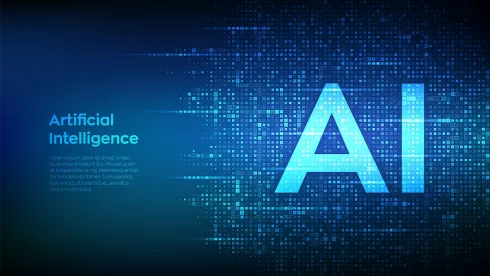On Thursday, May 4, 2023, the Biden-Harris Administration announced its plan to implement artificial intelligence (“AI”) safeguards to “protect people’s rights and safety.”
Given the rapid development of AI in workplaces, public health, education, and security, the Administration seeks to underscore related risks and opportunities. Vice President Kamala Harris and senior Administration officials have met with leaders at the forefront of AI innovation to call attention to “responsible, trustworthy, and ethical innovation with safeguards that mitigate risk and potential harms to individuals and our society.”
Summarized by the Administration, the announcement includes:
- Investments to drive responsible AI research and development – The National Science Foundation plans to invest $140 million to launch seven institutes to “pursue transformative AI advances.”
- Public assessments of existing AI systems – Community partners and AI experts will participate in an independent public evaluation of AI systems to determine whether the systems align with practices outlined in the Administration’s “Blueprint for an AI Bill of Rights.”
- Policies to mitigate AI risks and harnessing AI opportunities – The Office of Management and Budget (“OMB”) intends to release policy guidance that would enable companies to leverage AI systems to advance their mission.
The Administration’s announcement follows several recent developments in the workplace AI space. As we reported, on April 6, 2023, the New York City Department of Consumer and Worker Protection (“DCWP”) issued a Notice of Adoption of Final Rule, regarding automated employment decision tools “(AEDT”). More recently, we reported that on April 25, 2023, the Equal Employment Opportunity Commission, Consumer Financial Protection Bureau, Justice Department’s Civil Rights Division, and the Federal Trade Commission issued a “Joint Statement on Enforcement Efforts Against Discrimination and Bias in Automated System,” in which the federal agencies resolved to vigorously enforce their collective existing legal authorities and to monitor the development and use of automated systems. Although the White House’s announcement does not have any immediate impact on organizations using or considering using AI for employment-related purposes, it is not unreasonable to view it, along with other recent regulatory actions, as further confirmation of government focus on ensuring that employers use AI in a manner that protects employees’ rights and safety in various contexts, including employment.
Epstein Becker & Green, P.C., will continue to monitor and report on developments in this rapidly developing area of the law.





 />i
/>i

